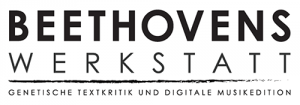IAML 2016
International Association of Music Libraries, Archives and Documentation Centres (IAML)
3. bis 8. Juli 2016, Rom
Bei der IAML 2016 wird Johannes Kepper einen Vortrag mit dem Titel Expression beyond Scope: How FRBR and MEI fit together halten.
Im Folgenden wird der Abstract wiedergegeben:
Since 2013, the Music Encoding Initiative (MEI) provides a basic implementation of the Functional Requirements for Bibliographic Records (FRBR). This implementation is neither complete (it covers only FRBR Group 1 entities (work, expression, manifestation, item) and their corresponding relations) nor up to date (it’s still based on the revised working draft for FRBR, which dates back to 2009). Nevertheless, the availability of even this basic adoption has facilitated the work of various research projects, and is still regarded as a major improvement for the metadata section of MEI. At the same time, the semantics provided by FRBR have inspired non ‐ librarian users of MEI to employ these concepts in other contexts, most notably to describe compositional processes surfacing in music sketches and other manuscripts. In this context, a slightly modified musical phrase could be interpreted as reconfiguration of its earlier version. While this use of FRBR’s terminology seems almost intuitive from a naive perspective, it actually contradicts the official concepts of FRBR, which was designed to describe the genesis of full works and their manifestation and distribution as physical objects. The essential difference is that FRBR isn’t applied to complete entities, but to atomic bits of information within these entities. In case of stemmatic relations, which seem to be another potential use ‐ case for FRBR in MEI, these relations may even contradict each other, and have to be treated as interpretations of varying credibility. The paper will discuss how current FRBR, most notably FRBRoo, can be adopted to MEI, and which consequences such an update will have. It will illustrate the use of this revised schema for metadata, based on examples from the Detmold Court Theater project, but will also introduce editorial use cases of FRBR, based on examples from the Beethovens Werkstatt project, and how they relate or potentially expand the concepts of FRBR in general.
Weitere Informationen sowie das Programm der Konferenz sind hier zu finden.
